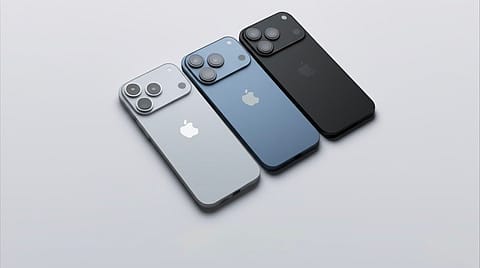Apple’s big design reboot: WWDC to unveil historic design changes across iPhone, Watch, TV, and more
As WWDC approaches, Apple is facing a familiar question with renewed urgency: can it reinvent itself before someone else does?

At its Worldwide Developers Conference (WWDC) on June 9, Apple is set to roll out one of the biggest software design overhauls in its history, touching everything from the iPhone to the Apple Watch, TV and even the Vision Pro headset, Mark Gurman, Bloomberg Managing Editor wrote in his Power On newsletter on May 25.
The new design language, internally dubbed “Solarium,” is expected to bring a more modern, unified interface across iOS, iPadOS, macOS, tvOS and watchOS. Inspired by visionOS, which powers the Vision Pro, the update promises slicker visuals and a consistent experience across devices, the most comprehensive redesign since iOS 7.
But while Apple refines the look and feel of its products, the tech world is watching for something more, signs that the company can keep pace in the artificial intelligence race. That scrutiny only intensified after news broke that former Apple design chief Jony Ive’s startup is being acquired by OpenAI in a $6.5 billion deal on May 21. Ive, once the creative force behind the iPhone and Mac, will now help Sam Altman’s OpenAI build AI-centric hardware. This may not immediately pose as a direct challenge to Apple for now but will definitely challenge the latter’s vision for the future.
Apple’s efforts in AI have lagged behind rivals like Google and Microsoft, who’ve made aggressive bets in generative AI. Apple Intelligence will get some attention at WWDC, including new features for developers and a Siri-Google Gemini tie-up, Gurman says. Still, he doesn’t expect headline-grabbing AI breakthroughs. The real story will be about design, not disruption.
That’s a concern for some. Critics argue Apple is focused on polishing legacy products while others invent the next computing platform. Even internally, there’s acknowledgment of the risk. Apple's senior vice president of Services, Eddy Cue acknowledged, while testifying in the US government's antitrust case against Google, “new technologies come about, new companies get formed, and the incumbents have a hard time with it. You have to earn it in technology every day. People still are going to need toothpaste 20 years from now, 40 years from now. You may not need an iPhone 10 years from now, as crazy as that sounds. You have to earn it.”
Recommended Stories
Apple is quietly racing to deliver more AI-driven devices, like a robotic home assistant and an upgraded smart screen. But delays and Siri limitations have slowed progress.
As WWDC approaches, Apple is facing a familiar question with renewed urgency: can it reinvent itself before someone else does?
(INR CR)
“For now, Apple is still living in a legacy world. The OpenAI deal should be a wake-up call, even if it’s not a sign of the company’s eventual downfall,” Gurman wrote in his weekly Power On newsletter.